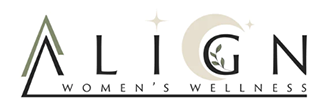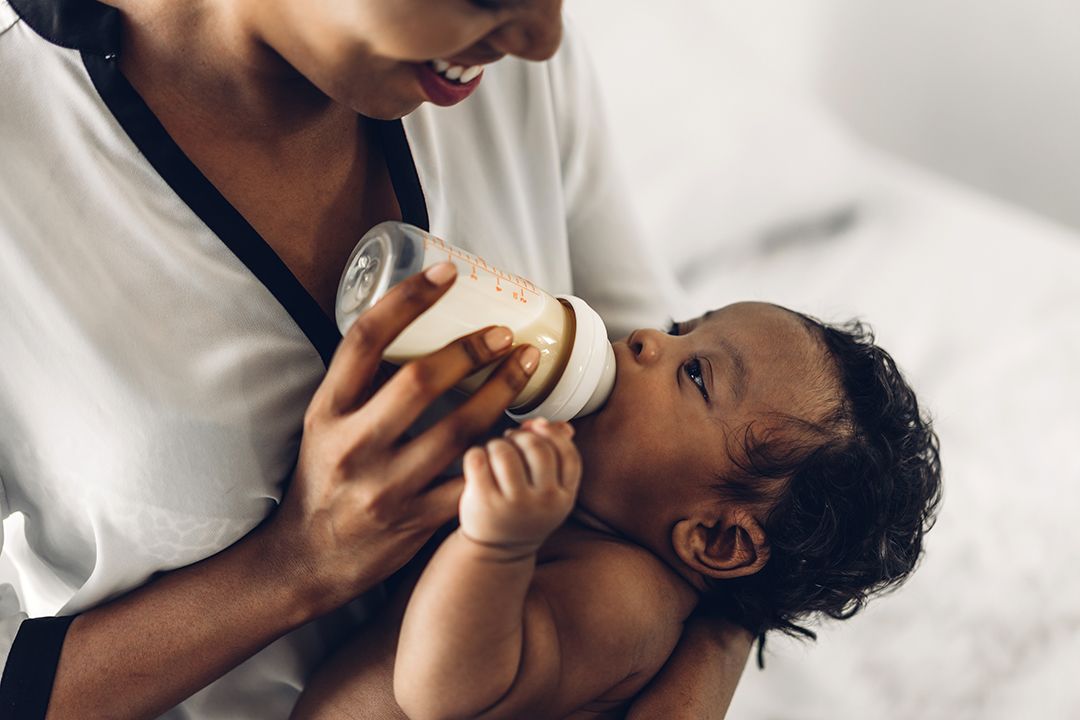When I had my babies six and four years ago, I was working as a Medical Sales Representative in the Pediatric, OBGYN, and Labor & Delivery fields. One product that I sold was breast pumps. I did feel immense pressure to succeed at breastfeeding both professionally, and personally since my close friends also told me that it was my only choice. I did feel lucky that I had resources, and friendships with breast feeding professionals, and I did utilize them in my moments of worry and confusion. They are wonderful people, nurturing people for the most part.
However, I also was open to doing what I had to do to feed my baby. I had a hunch I may need of formula to supplement until my milk came in, so I brought it to the hospital with me. I tried to do everything they told me to do and start with breastmilk, but my milk was not coming in and my first born was jaundice. We could either stay in the hospital and give him phototherapy treatment, or we supplement to boost his levels and then we get to go home. Supplementing seemed like the right decision to me.
I forget all the rules exactly, but I remember that they don't want newborns getting used to the bottle nipple and not going back to your nipple. I had so much fear around being too weak to stick it out and making a wrong decision about breastfeeding. It's not a laid back, you have options kind of thing- you have to do a lot of things to a right. Essentially, there are guidelines, techniques, a lot to learn about your body, baby, and your breast pump! I did not like pumping- and pumping, feeding, working, and not sleeping while taking care of a toddler and infant, was a lot. I did it for ten months with my first and three with my second. because she was aspirating and needed thickened liquids. I did not produce enough milk, so I did supplement. The word "supplement" had a negative connotation, and I would refrain from telling people in the field that I was not exclusively breastfeeding.
We all know breastfeeding is best, and I worked alongside the "Baby Friendly" Hospital Mission to encourage more mothers to breastfeed, but how about a "Mother Friendly" initiative where we educate women about their feeding options with less judgement and make a mother's mental health the priority. Some Physicians would not even write a script for a breast pump until their 6-week checkup because they did not want them to start pumping yet. You need that breast pump if you run into a medical issue, or for the mother's that want to give their baby breast milk but are not interested in having the baby latch. When we need to pump is a personal decision that is every woman's right.
We need to give women more respect, rights, and options and remove all the judgement around this mom role. It's exhausting and so unnecessary. Our judgement of ourselves and our fellow mamas is making us unwell. I remember a lactation consultant said to me oh, you stopped breastfeeding at 10 months, that's too bad. I knew she was being extreme, but we can't do this to women, we must support their decisions for themselves and their mental health. I have had pediatricians tell me they did not continue to breast feed when they went back to work because pumping was too much. That is ok- at what cost are we willing to push ourselves?
What made me feel so confident about supplementing was the fact that I used this Organic Formula that was from Europe. It took away all the guilt and worry. It was no longer guilty that I had to give them harmful U.S. brands. I wanted to shout this from the rooftops, Ladies, it is ok, you don't have to feel bad for supplementing or deciding not to breastfeed. Also, for the ladies that used a formula from the U.S., no shame either. Our government doesn't make it easy for us to readily buy the healthiest things on our shelves. I just want to send all new moms so much love and compassion for this hard thing you are doing, and I want you to know there are wonderful formulas out there that are healthy your babies. Please read on further to learn more about the Organic European Formula's that are available to you, and why they are healthier for your baby. The Organic Formula Shop has written the extremely helpful and insightful blog below. They will ship you a variety of formulas, and you will receive them in 3-5 business days anywhere in the U.S.!
A healthy life(style) starts right from the beginning! Regarding baby formula, the questions to ask are: which ingredients are used, and how are they produced? The official guidelines of organic formulas produced in Europe are stringent. Even stricter than the ones in North America. The great thing about manufacturers like HiPP and Holle is that they even go one step further.
They have made stricter guidelines for themselves than the rules set by the European Union! So, let’s dive into some of the main ingredients:
They have made stricter guidelines for themselves than the rules set by the European Union! So, let’s dive into some of the main ingredients:
No GMO’s, Sucrose, or Pesticides
All European formulas are made with organic ingredients, and nearly all are certified organic. European formula does not contain any Genetically Modified Ingredients (G.M.O.), sucrose, or pesticides. The only formulas that are not certified organic are those that use protein hydrolysates, such as HiPP Anti Reflux or HiPP Hypoallergenic, as protein hydrolysates are not available in organic form. All formulas approved by the European Commission must be produced from animal milk that contains no hormones, no detectable levels of pesticide residues, and no GMO’s. The USFDA only sets out several very basic guidelines to be included in the baby formula. So, as long as the ingredients are somewhat “safe” and not contaminated, they’re good to go.
The reasons speak for themselves. European baby formulas are produced in a healthier and more natural way. The recommendation and guidelines of the EFSA continually evolve as more is discovered about the properties of breastmilk. We are convinced!
Prebiotics & Probiotics in Organic Formula
Prebiotics
Prebiotics are like food for beneficial gut bacteria (like probiotics) and are naturally found in breast milk. They won’t get digested, but they will aid the growth of probiotics. This can help to shift your baby’s microbiome to be more similar to that of a breastfed baby. When selecting a formula, it’s advisable to check the ingredients list for common prebiotics like Galactooligosaccharides (GOS) or Fructooligosaccharides (FOS).
Probiotics
Probiotics are the beneficial gut bacteria that have an important part in a healthy baby’s microbiome. Probiotics may help improve immune response, could reduce colic, prevent eczema, and more.
When selecting a formula, check the ingredients list for Lactobacillus or Bifidobacterium.
The Right Carbohydrate
Lactose
Lactose is the carbohydrate that is found in breast milk. That is the reason why Lactose-based formulas are much closer to breast milk than other alternatives. Babies produce the lactase enzyme so they can easier digest and absorb Lactose.
Lactose also has a far lower glycemic index than processed, refined sugars, aids in the absorption of calcium, which can help develop beneficial gut bacteria, and more.
In short, choosing a Lactose-based formula could probably be the most important step in finding a good formula out there. As you read the ingredients, keep in mind that lactose is the main ingredient in cow’s milk, and may appear as “organic cow’s milk” or “organic skimmed milk” in ingredient lists. Lactose-based formulas are typically manufactured in Europe.
Processed Refined Sugars
Formulas manufactured in the US are more often based on sugar, corn syrup, syrup solids, maltodextrin, or brown rice, all of which are high in sucrose and have a high glycemic index. These ingredients are unhealthy for your baby. Formulas with added sucrose are prohibited in Europe due to childhood obesity concerns. Unfortunately, obesity is quite a big problem in the US. Almost 1 in 5 children are struggling with obesity, so it has never been more important to read the ingredients list of the formula carefully.
Our organic formulas has DHA and ARA
DHA
DHA is a long-chain omega 3 fatty acid that is important for early eye and brain development. It has become mandatory to have DHA in baby Formula.
ARA
ARA is another fatty acid that is important in regulating inflammation and in generating different body signals.
Organic Baby Formula Nutrients
Synthetic nutrients include lutein, lycopene, taurine, L-carnitine, and L-methionine. Many of these substances are toxic themselves or processed with toxic solvents. They are banned in the EU but are still commonly found in formulas made in the USA and Canada.
Preservatives
Most of the US-made formulas contain synthetic preservatives like ascorbic palmitate and beta carotene. You won’t find these preservatives in any European formulas. These synthetic preservatives can be toxic and are not something you want on your baby’s menu.
Palm or Soy
Palm Oil
Palm oil is used in most formulas in both Europe and the US. It may cause digestive issues and gassiness in babies, but is still typically better than soy oil, which is the main alternative.
Soy Oil
Soy oil is the main alternative to palm oil. While it isn’t typically associated with digestive issues, some research links it to severe menstrual cramps later in life for women. Given this, palm oil is generally considered the better alternative between the two.
Conclusion
Many baby formulas appear similar at first, but their ingredients lists say otherwise. Check out our handy Hipp vs Holle chart to help you decide what you do and don’t want in your little one’s formula.
Any questions?
If you have any questions, please do not hesitate to contact us, Organic Formula Shop. We are here to help! It is our mission to help you find the best formula for your little one.

